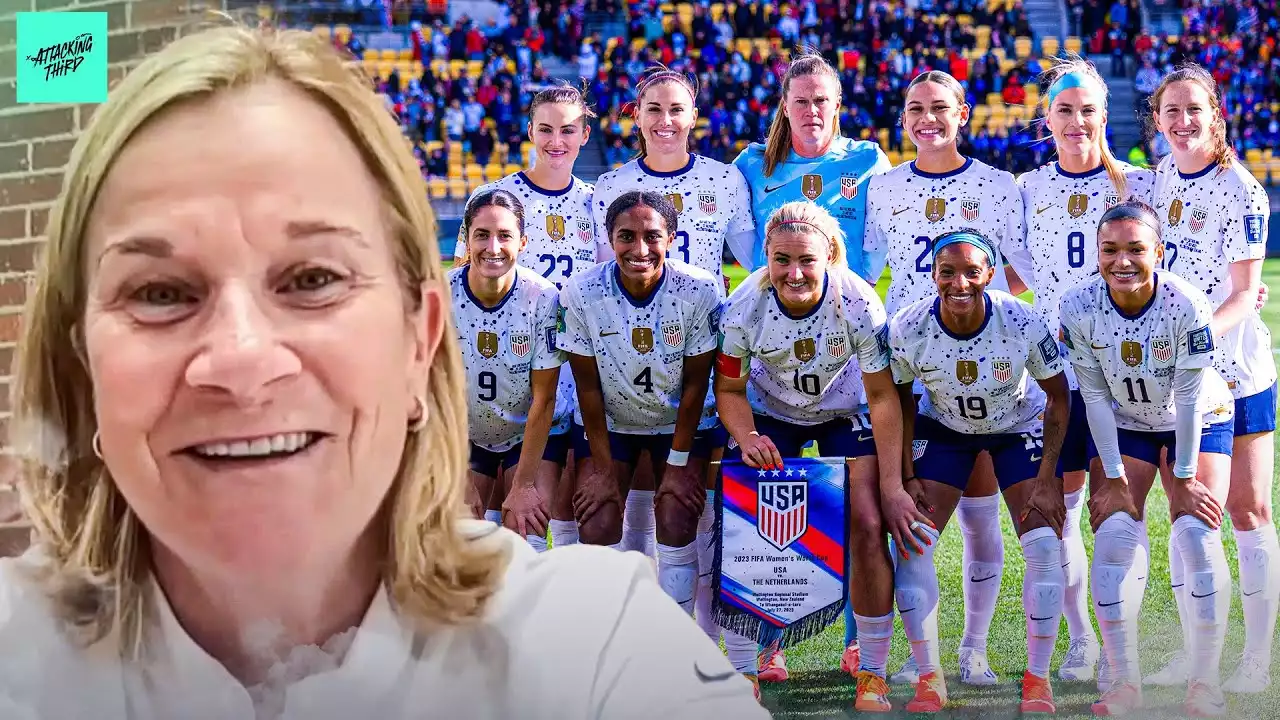The importance of female managers in women's football
Female managers have played a crucial role in shaping the landscape of women's football. They have not only brought their expertise and tactical acumen to the game but have also provided much-needed representation for aspiring female athletes. In a sport historically dominated by men, these pioneering managers have shattered glass ceilings and opened doors for countless women who dream of a career in football.
Having female managers in women's football brings a unique perspective to the game. They understand the challenges and experiences faced by female players, allowing them to create an inclusive and supportive environment for their teams. Their ability to relate to their players on a deeper level fosters trust, respect, and ultimately, stronger team dynamics.
Furthermore, female managers serve as role models for aspiring female footballers. By seeing successful women in leadership positions, young girls are inspired to pursue their dreams and strive for greatness on and off the field. The presence of female managers not only encourages young girls to participate in the sport but also challenges societal norms and stereotypes surrounding women's involvement in football.
Ultimately, the importance of female managers in women's football cannot be overstated. They bring diverse perspectives, inspire future generations, and pave the way for a more inclusive and equitable future for the sport.
Jill Ellis - The two-time World Cup-winning coach
Jill Ellis is an iconic figure in women's football, having led the United States Women's National Team (USWNT) to two consecutive World Cup victories in 2015 and 2019. Her tactical brilliance and ability to bring out the best in her players have made her one of the most successful managers in the history of the Women's World Cup.
Ellis's coaching philosophy emphasizes attacking football, high intensity, and an unwavering belief in her team's abilities. Under her guidance, the USWNT dominated the 2019 World Cup, scoring a record-breaking 26 goals and conceding only three throughout the tournament. Her ability to motivate and inspire her players to perform at their best was evident in their relentless pursuit of success.
Beyond her tactical prowess, Ellis also played a crucial role in fostering a positive team culture within the USWNT. She created an environment where players felt valued, supported, and empowered to express themselves both on and off the field. Her focus on building strong relationships and fostering team chemistry undoubtedly contributed to their success.
Jill Ellis's impact extends beyond the Women's World Cup. As a trailblazer in women's football management, she has inspired countless young girls to pursue their passion for the sport and has paved the way for future generations of female managers. Her achievements serve as a testament to the limitless potential of women in football.
Pia Sundhage - Leading the US Women's National Team to Olympic gold
Pia Sundhage's tenure as the head coach of the United States Women's National Team (USWNT) from 2008 to 2012 saw the team achieve unprecedented success, including two Olympic gold medals. Her unique coaching style and ability to connect with her players on a personal level contributed to the team's triumphs on the international stage.
Sundhage's coaching philosophy revolved around creating a positive and empowering environment for her players. She prioritized open communication, trust, and mutual respect, allowing her team to thrive both individually and collectively. Her ability to instill a sense of confidence and belief in her players was evident in their performances, as they consistently showcased their skills and determination on the pitch.
Beyond her tactical acumen, Sundhage's genuine care for her players and her ability to understand their individual strengths and weaknesses played a crucial role in their success. She recognized the importance of building strong relationships and fostering a sense of camaraderie within the team, which translated into a cohesive and united group of players.
Pia Sundhage's impact on women's football extends far beyond her achievements with the USWNT. Her ability to connect with her players and create a supportive environment has set a precedent for future female managers. Her success is a testament to the power of effective leadership, communication, and the importance of nurturing relationships within a team.
Silvia Neid - Germany's most successful women's national team coach
Silvia Neid is widely regarded as one of the most successful managers in the history of women's football. As the head coach of the German women's national team from 2005 to 2016, she led the team to numerous victories, including the 2007 Women's World Cup and the gold medal at the 2016 Olympics. Her tactical acumen and ability to get the best out of her players set her apart as a true pioneer in the field of women's football management.
Neid's coaching style was characterized by meticulous planning, attention to detail, and a focus on teamwork. She believed in building a solid foundation of technical skills and tactical discipline, which allowed her team to dominate matches and outplay their opponents. Her ability to adapt her strategies based on the strengths and weaknesses of her players and the opposition was a key factor in her success.
Beyond her achievements on the field, Neid's impact on women's football in Germany was immeasurable. She played a vital role in the development and professionalization of the women's game, helping to elevate it to new heights. Her success as a manager inspired a generation of female footballers and paved the way for future generations to follow in her footsteps.
Silvia Neid's legacy as Germany's most successful women's national team coach will forever be remembered. Her commitment to excellence, tactical brilliance, and dedication to the game have left an indelible mark on women's football, both in Germany and around the world.
Sarina Wiegman - Guiding the Netherlands to their first Women's Euro title
Sarina Wiegman is a trailblazer in women's football management, having led the Netherlands Women's National Team to their first-ever major international title, the UEFA Women's Euro 2017. Her tactical astuteness and ability to instill a winning mentality in her players propelled the Dutch team to new heights and inspired a nation.
Wiegman's coaching philosophy is centered around a possession-based style of play, tactical discipline, and an emphasis on teamwork. She meticulously prepares her team for every match, analyzing the strengths and weaknesses of the opposition and devising strategies to exploit them. Her ability to create a cohesive and well-drilled unit was evident in the Netherlands' performances throughout the tournament.
In addition to her tactical brilliance, Wiegman's leadership qualities and ability to connect with her players played a crucial role in their success. She created an environment where players felt valued, supported, and empowered to express themselves on the field. Her approachable and supportive nature fostered a sense of trust and camaraderie within the team, which translated into their performances.
Sarina Wiegman's achievements with the Netherlands Women's National Team have not only brought glory to the nation but have also inspired a new generation of female footballers. Her success serves as a reminder that with hard work, dedication, and belief, anything is possible, regardless of gender.
Asako Takakura - Shaping the future of Japanese women's football
Asako Takakura is a pioneer in Japanese women's football management, having led the country's national team to success both as a player and as a coach. Her impact on the game in Japan has been profound, as she has played a vital role in developing and nurturing the talent of young female footballers in the country.
Takakura's coaching philosophy is centered around technical excellence, tactical discipline, and a commitment to continuous improvement. She places great emphasis on the development of individual skills, as well as the importance of teamwork and a strong work ethic. Her ability to instill a sense of discipline and commitment in her players has been instrumental in their success.
Beyond her success with the national team, Takakura's impact extends to the grassroots level of the game. As the head coach of Japan's U-20 and U-17 teams, she has played a crucial role in identifying and developing young talent, ensuring a bright future for Japanese women's football. Her dedication to nurturing the next generation of players has helped establish Japan as a force to be reckoned with in women's football.
Asako Takakura's contributions to women's football in Japan cannot be overstated. Her commitment to excellence, technical expertise, and dedication to player development have reshaped the landscape of the game in the country. Her success serves as an inspiration for aspiring female footballers and a testament to the power of effective coaching and mentorship.
The impact of these pioneering female managers on the game
The impact of these pioneering female managers extends far beyond the Women's World Cup. Their achievements have challenged societal norms, shattered glass ceilings, and paved the way for future generations of female managers. They have not only demonstrated their tactical brilliance and leadership skills but have also served as role models for aspiring female athletes around the world.
The success of female managers in the Women's World Cup has shattered the misconception that women are incapable of leading at the highest level of the game. Their achievements have shown that gender is no barrier to success and that women have a rightful place in football management.
Furthermore, the presence of female managers has contributed to a more inclusive and equitable environment within women's football. Their ability to understand and relate to the experiences of female players has created a supportive and empowering culture, where players feel valued and respected.
The impact of these pioneering female managers will continue to shape the future of women's football. Their achievements serve as a reminder that with equal opportunities and representation, women can excel in any field, including football management.
Challenges faced by female managers in the Women's World Cup
While female managers in the Women's World Cup have achieved remarkable success, they have also faced unique challenges and obstacles along the way. The gender disparity in the sport, coupled with societal expectations and stereotypes, has presented hurdles that female managers must overcome to succeed.
One of the main challenges faced by female managers is the lack of representation and opportunities. Women's football has historically been dominated by men, and this is reflected in the coaching and managerial positions within the sport. The limited number of female managers at the highest level presents a barrier for aspiring women looking to break into the field.
Additionally, female managers often face scrutiny and skepticism from both the media and the public. Their decisions and tactics are often scrutinized more heavily than their male counterparts, leading to additional pressure and criticism. This scrutiny can create an added layer of stress and difficulty for female managers, as they strive to prove themselves in a male-dominated industry.
Despite these challenges, female managers in the Women's World Cup have shown resilience, determination, and a relentless pursuit of success. Their ability to overcome these obstacles is a testament to their strength and unwavering passion for the game.









